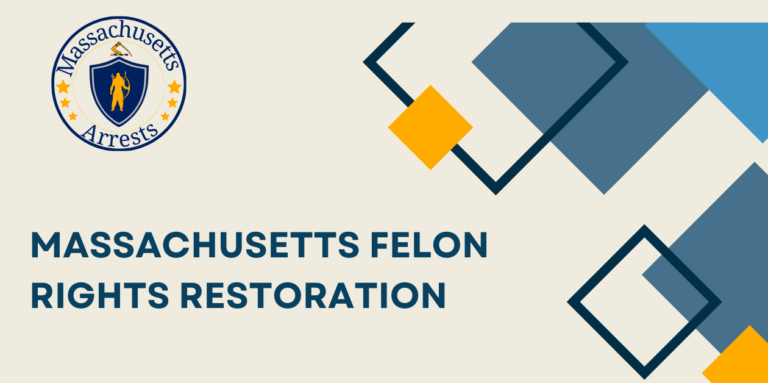Understanding Expungement and Record Sealing in Massachusetts
In the pursuit of justice and fairness, the legal system acknowledges that individuals should not be burdened indefinitely by past mistakes. Expungement and record sealing are legal remedies designed to provide relief for those with prior criminal records. In Massachusetts, these processes offer individuals a chance to move forward and reintegrate into society.
Laws and Eligibility Criteria
In Massachusetts, expungement and record sealing are governed by specific laws and regulations. To be eligible for expungement or record sealing, individuals must meet certain criteria outlined by the state. These criteria may include the nature of the offence, the time elapsed since the conviction, and the individual’s behaviour since the conviction.
Types of Records
It’s essential to understand the distinction between expungement and record sealing. Expungement involves the complete erasure of a criminal record as if the offence never occurred. On the other hand, record sealing entails restricting access to the record, making it inaccessible to the general public while still retaining it in government databases.
Benefits of Expungement and Record Sealing
The benefits of expungement and record sealing extend beyond the individual to society as a whole. By providing individuals with a clean slate, these processes facilitate their reintegration into society. They also increase access to employment opportunities and housing, ultimately reducing recidivism rates.
Process of Expungement and Record Sealing
The process of expungement and record sealing in Massachusetts involves several steps. Individuals seeking relief must file petitions with the appropriate court, attend hearings, and comply with waiting periods. While the process can be complex, legal assistance is available to guide individuals through each stage.
Limitations and Exceptions
It’s essential to recognize that not all offences are eligible for expungement or record sealing. Certain serious offences, such as violent crimes and sex offences, may be ineligible for relief. Additionally, individuals with multiple convictions may face limitations on their ability to expunge or seal their records.
Legal Assistance and Resources
Navigating the legal process of expungement and record sealing can be daunting, but individuals don’t have to go it alone. Legal assistance is available to help individuals understand their rights, navigate the legal system, and advocate on their behalf. Additionally, various resources exist to provide information and support to individuals seeking relief.
Expungement and Record Sealing Trends
The landscape of expungement and record sealing is constantly evolving, with recent developments reflecting changing attitudes towards criminal justice reform. Looking ahead, there is optimism for further progress in expanding access to relief and promoting equity within the legal system.
Public Awareness and Education
Increasing public awareness and understanding of expungement and record sealing is crucial for ensuring equitable access to relief. Through targeted campaigns, community outreach efforts, and education initiatives, stakeholders can empower individuals with the knowledge they need to seek relief and rebuild their lives.
Impact on Individuals and Communities
The impact of expungement and record sealing extends far beyond the individual to their families, communities, and society at large. By removing barriers to employment and housing, these processes empower individuals to lead productive lives and contribute positively to their communities.
Challenges and Obstacles
Despite the benefits of expungement and record sealing, various challenges and obstacles remain. Administrative hurdles, limited resources, and advocacy efforts are among the barriers that individuals may encounter when seeking relief. However, concerted efforts to address these challenges can lead to positive outcomes.
Comparative Analysis
By comparing Massachusetts’ expungement and record-sealing policies with those of other states, policymakers can identify best practices and areas for improvement. Through collaboration and knowledge-sharing, stakeholders can work towards creating a more equitable and effective legal framework for relief.
Case Studies
Examining successful expungement cases can provide valuable insights into the impact of relief on individuals’ lives. By highlighting personal stories and testimonials, stakeholders can illustrate the transformative power of expungement and record sealing.
Policy Recommendations
Building on lessons learned and best practices, policymakers can propose reforms to enhance access to expungement and record sealing in Massachusetts. Legislative advocacy efforts can help enact meaningful change and promote fairness within the legal system.
FAQS
Explore our comprehensive Frequently Asked Questions (FAQ) section to find answers to common queries about ARRESTS.ORG MA.
What is expungement?
Expungement is a legal process that allows individuals to have their criminal records erased or sealed from public view. It provides a fresh start by treating the conviction as if it never occurred.
Can all criminal records be expunged in Massachusetts?
No, not all criminal records can be expunged in Massachusetts. Certain offences, such as murder, sexual offenses, and certain firearms offences, cannot be expunged. It is important to consult with an attorney to determine if your specific offence is eligible for expungement.
What is record sealing?
Record sealing is a process that restricts access to certain criminal records. While the records are not completely erased, they are no longer accessible to the general public. Only specific government agencies and law enforcement officials can access sealed records.
Who is eligible for record sealing in Massachusetts?
In Massachusetts, individuals who have been convicted of certain non-violent offences or have completed a diversion program may be eligible for record sealing. Eligibility requirements may vary depending on the type of offence and the individual’s criminal history.
How long does the expungement or record-sealing process take?
The expungement or record sealing process in Massachusetts can vary in duration. It depends on various factors such as the type of offence, the court’s caseload, and the efficiency of the legal process. It is advisable to consult with an attorney to get a more accurate estimate of the timeline for your specific case.
What are the benefits of expungement or record sealing?
Expungement or record sealing can have numerous benefits, including improved employment prospects, housing opportunities, and the ability to rebuild one’s life without the stigma of a criminal record. It provides a fresh start and a chance to move forward.







